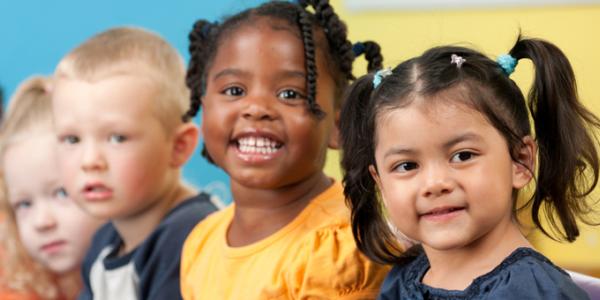Early Childhood Education on the World Stage

You are here
Investment in early childhood education and care is gaining traction.
Governments, international bodies, coalitions, and private sector entities are all recognizing that quality, early education and care for children is an economic and social investment for future growth and wellbeing.
As we collaborate to improve our own system of high-quality early childhood education and care in the United States, it’s vitally important that we look abroad and understand the scope of ECCE outside of our own contexts. When we inform ourselves and advocate beyond our borders, we gain the opportunity to participate in international partnerships, represent our interests and our expertise in timely dialogues, we discover innovative ideas and methods to apply at home and most importantly we strengthen the future for ALL children around the world.
Drivers of Global Early Childhood Investment
UN Sustainable Development Goal 4 – Quality Education
The United Nations Sustainable Development Goals (SDGs) are a set of 17 markers to achieve Sustainable Development across sectors and nations by 2030. They are a continuation of the Millennium Development Goals, which aimed to reduce extreme poverty by 2015. These goals recognize the need to support improved health and education, reduce negative stressors on our natural resources, and tackle issues of inequity and discrimination in countries around the world to ensure a secure, stable future for all.
The work we do as educators and advocates to advance the profession, call for investments in ECE at the federal and local levels, apply researched best practice in our classrooms and serve young children across the country; it all contributes to the success of Sustainable Development Goal 4.2.
The importance of early childhood education is highlighted in SDG 4: “ensure inclusive and equitable quality education and promote lifelong learning opportunities for all”.
Each goal is broken down by Targets, with Target 4.2 being, “by 2030, ensure that all girls and boys have access to quality early childhood development, care and pre-primary education so that they are ready for primary education”.
Progress is measured by the following Indicators:
“4.2.1 Proportion of children under 5 years of age who are developmentally on track in health, learning and psychosocial well-being”
“4.2.2 Participation rate in organized learning (one year before the official primary entry age)”
G20 Development Working Group – 2018 Buenos Aires
In 2018, world leaders met in Buenos Aires, Argentina for the G20 Summit under the theme of Building Consensus for Fair and Sustainable Development. The 2018 G20 Development Working Group produced the first intensive focus on the need to prioritize and invest in Early Childhood Development, in order to promote sustainable economic growth. Through the Initiative for Early Childhood Development, G20 governments are encouraged to improve upon the overarching systems that regulate and support early childhood education and care in their countries.
The next summit, held in Tokyo in 2019, focused on ECE as a major component of an education task force. The decisions and commitments made at these summits can lead to macro-changes in investment priorities in countries around the world.
Nurturing Care Framework
In 2018, the World Health Organization (WHO) and other collaborators created the Nurturing Care For Early Childhood Development - A Framework for Helping Children Survive and Thrive to Transform Health and Human Potential. Known as the Nurturing Care Framework, this multi-sector plan - with a focus on health and development - intends to guide “policies and services [to] support parents, families, other caregivers and communities in providing nurturing care for young children” to achieve long-lasting benefits that will span generations.
The Framework breaks Nurturing Care down into 5 components:
- good health
- adequate nutrition
- responsive caregiving
- security and safety and,
- opportunities for early learning.
It then addresses the steps needed to assist caregivers - the first and main providers of nurturing care - by creating policies, providing services and empowering communities to address potential challenges, have adequate resources and ensure optimal and total development in the critical early years.
USAID Education Policy: Program Cycle Implementation and Operational Guidance
In November 2018, the United States Agency for International Development (USAID) released their agency-wide guidelines for educational programs. The policy heavily focuses on children and youth, citing investment in supporting “literacy, numeracy, and [development of] social-emotional skills” in early education as strategically important to the success of missions around the globe.
The document also includes links to technical tools and content on best practices and references NAEYC’s Developmentally Appropriate Practice (DAP) as an early learning resource.
Continue the Conversation
The Children’s Global Issues Interest Forum in HELLO is growing, and you can join the momentum. Post topics of conversation to the Open Discussion Forum. Ask questions about global trends, or practices and innovations taking place in other countries. Share ways your center is meeting the SDGs and other international early education goals. With Hello you can engage with educators from around the world.